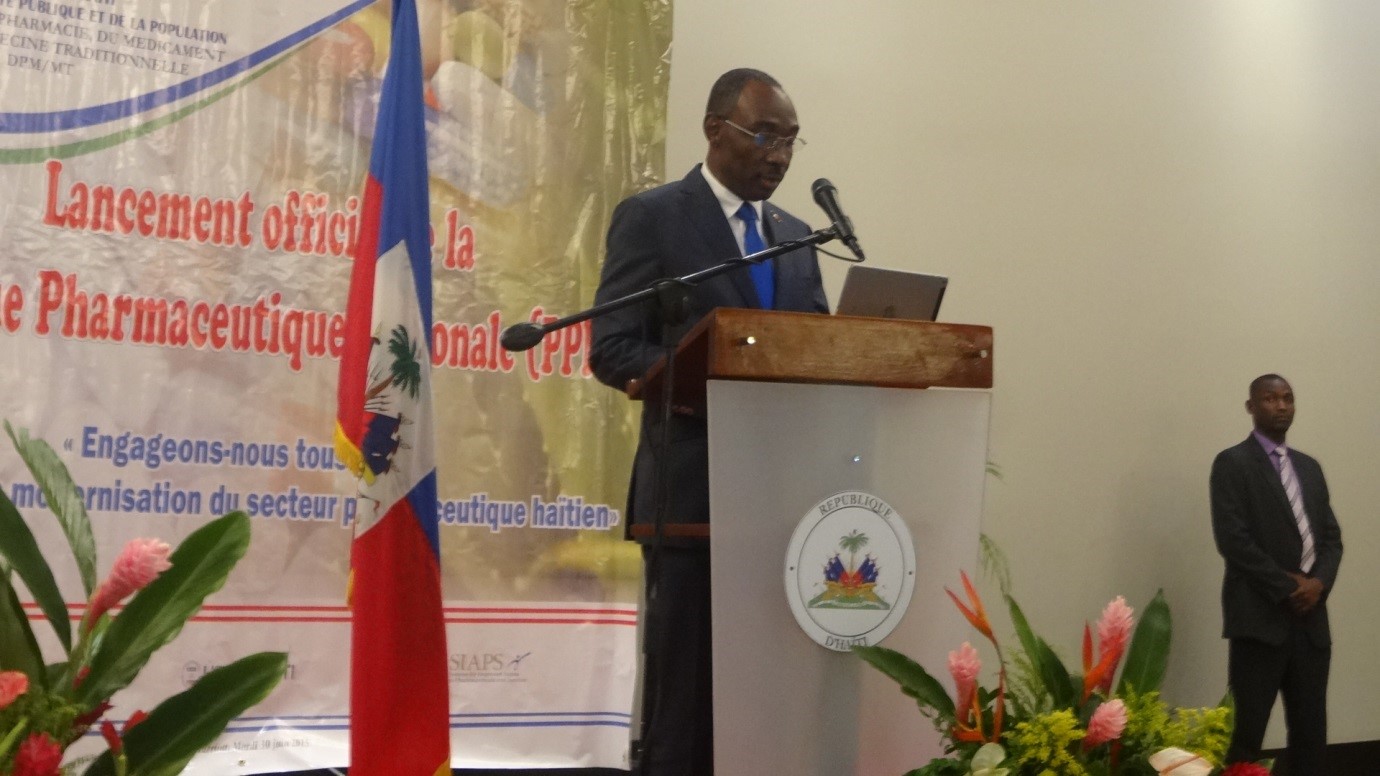Background
Limited access to medicines in low-income countries such as Haiti remains a critical stumbling block to achieving health outcomes that decrease morbidity and mortality. With a population of 11 million, an HIV prevalence of 2.1%, and a high prevalence of bacterial and protozoa infectious diseases,[1] Haiti has a high burden of preventable diseases.
Statistics show that less than half the population has acceptable access to medicines, and the quality of these medicines cannot be guaranteed.[2] The Ministère de la Santé Publique et de la Population (MSPP), donors, and nongovernmental organizations have implemented projects to increase the availability of medicines, but there has been limited success in achieving universal access to medicines in Haiti. The challenges impeding access to medicines include:
- An insufficient budget allocation to the MSPP
- Low incomes in the country
- High prices of medicines provided by distributors
- Inadequate legislation and regulations, resulting in noncompliance and lawlessness in the national pharmaceutical market
The pharmaceutical sector is regulated through outdated laws and policies dating from 1948 and 1955. A revised law on pharmacy and medicines was presented to Parliament in 2003 and passed by the Chamber of Representatives but has not been adopted by the Senate.
The USAID Mission and the US President’s Emergency Plan for AIDS Relief supported Haiti in the provision of HIV/AIDS commodities through the Supply Chain Management System Program.
Project Highlights
SIAPS conducted a situation analysis and reviewed key documents related to the pharmaceutical sector, including the Pharmaceutical Services Division of the Ministry of Health (Direction de la Pharmacie, du Médicament et de la Médecine Traditionnelle (DPM/MT)) assessment reports, the 1997 draft of the National Medicines Policy (NMP), the Pharmacy Law Act of 1997, the National Health Strategic Plan for 2005–1010, and DPM/MT standards and procedures. SIAPS supported the DPM/MT to identify priority pharmaceutical sector gaps that are critical to ensuring access to medicines.
The following recommendations were made to improve access to medicines and efficiency in the pharmaceutical system:
- Increase stakeholder engagement and buy-in for the revision of the NMP
- Develop a pharmaceutical strategic plan
- Establish a commission to analyze the status of medicine registration, inspection, and quality control, including opportunities for regional cooperation
- Disseminate and implement the revised essential medicines list
- Analyze the status of the DPM/MT standard operating procedures, including the organogram, procedures, and functions, and determine any needed updates to reflect key regulatory functions
- Analyze supply chain system channels for essential medicines and establish a mechanism of coordination for multiple stakeholders
- Establish a national Drug and Therapeutics Committee to guide the development of the national Standard Treatment Guidelines
- Conduct a situation analysis of the informal medicine sector with a focus on street medicine vendors
SIAPS assisted the DPM/MT in:
- Forming working groups and engaging stakeholders responsible for reviewing the NMP
- Establishing an NMP task force to support the development and submission process for the NMP
- Revising and disseminating the 1997 draft of the NMP to incorporate the recommendations of stakeholders and global health trends

Results
Haiti has a new NMP, better engagement of stakeholders in the pharmaceutical sector, and a clear understanding of the critical gaps that will enhance efficiency in the pharmaceutical sector and ensure sustainable availability of medicines. This contribution will go a long way toward ensuring better governance in the pharmaceutical sector in Haiti.
Resources
- Haiti Pharmaceutical Sector Technical Assistance Priorities
- SIAPS Program Supports Revision and Launch of Haiti’s First National Medicines Policy
- Policies and Strategic Plans: Establishing a Framework for Action
- First National Medicines Policy Launched in Haiti, July 8, 2015

